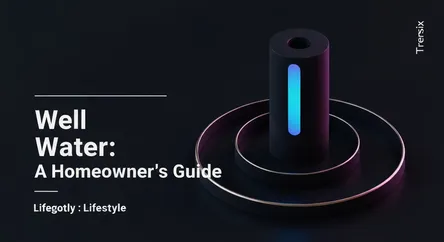Lifestyle
Well Water: A Homeowner's Guide

Considering a home with well water? Understand the pros, cons, and key responsibilities for a safe, self-sufficient water source on your property.
What is it?
Well water is groundwater extracted through a private well drilled on a property. Unlike municipal water, which is treated and supplied by a local government utility, well water is untreated in its natural state. It serves as the primary water source for many homes, particularly in rural and suburban areas that lack access to public water lines. The homeowner is entirely responsible for the well's pump, plumbing, and ensuring the water's safety through regular testing and potential filtration systems.
Why is it trending?
In real estate, interest in properties with private wells is growing as more people seek homes outside dense urban centers. This trend is fueled by a desire for greater self-sufficiency, privacy, and a lifestyle with no monthly water bills. For many, well water is perceived as more natural and free from the chemicals used in municipal treatment processes. The shift toward remote work has expanded housing options, making properties with wells a more common and attractive feature for homebuyers looking for larger lots and a connection to nature.
How does it affect people?
The primary effect on homeowners is total responsibility. They must arrange for periodic water quality tests to check for contaminants like bacteria, nitrates, and heavy metals. They are also responsible for all maintenance and repairs of the well pump and pressure tank. This independence can be empowering but requires due diligence during the home-buying process, including a thorough well inspection and water analysis. The quality and quantity of the water can directly impact property value and the health of its residents.